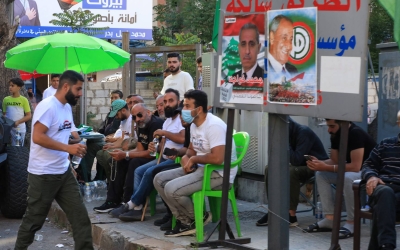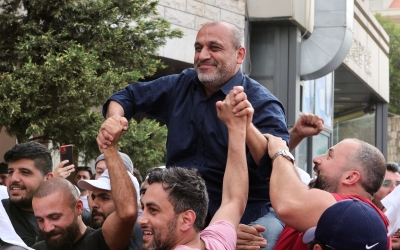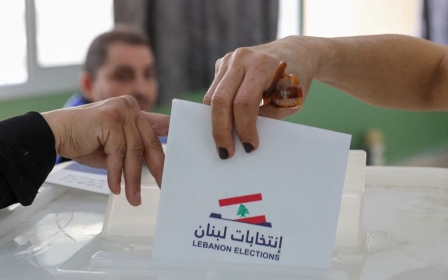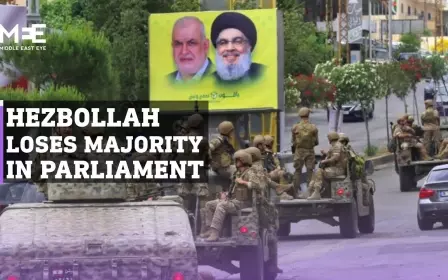Lebanon: Newly elected MP calls on US to sanction officials over Beirut port blast
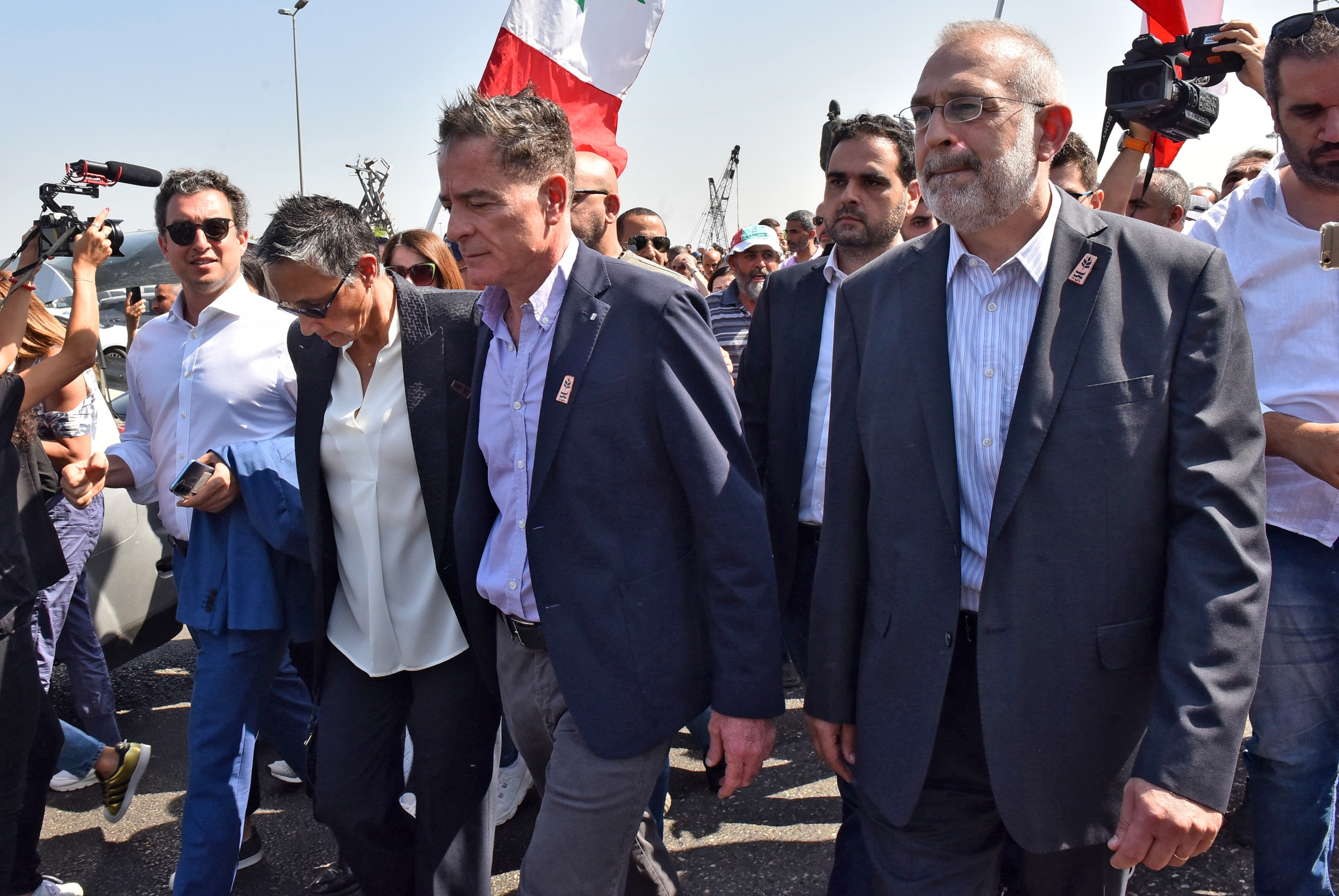
A newly elected member of Lebanon's parliament has called on the US to sanction officials and lawmakers over the 2020 Beirut port blast and the country's financial crisis.
"I would like to see US sanctions on those accused [in the port explosion] and sanctions on those involved in the Central Bank of Lebanon," Mark Daou told Middle East Eye in a phone interview from Beirut.
Daou is among a dozen reform-minded lawmakers who won seats in Lebanon's parliamentary elections last month. His defeat of Talal Arslan, a prominent Hezbollah-allied politician in the Aley district of Mount Lebanon, was a major political upset.
Independent candidates were catapulted to office by popular frustration with Lebanon's ruling class, who many blame for decades of corruption resulting in the explosion of Beirut’s port and an economic crisis the World Bank says could rank as one of the worst the world has witnessed in the last 150 years.
Daou's call for US sanctions is an early indicator of how the new parliamentary arrivals, many of whom are linked to civil society groups from the October 2019 protest movement, may use their platform within government to try and follow through on promises of change.
"Since the local processes in Lebanon and those in power continue to undermine justice and work against the interest of Lebanese people, added sanctions are needed to take action," Daou said.
The US has sanctioned sitting Lebanese members of parliament before. In 2019 Washington targeted two MPs for providing support to Hezbollah, the Iran-aligned Shia political and military group that the US and some European countries consider a terrorist organisation.
The most high-profile politician to be hit by US sanctions is Gebran Bassil, son-in-law of President Michel Aoun, and at the time, leader of Lebanon’s biggest Christian political party.
Earlier this year, the US denied rumours that it was preparing sanctions on Riad Salameh, Lebanon’s veteran central bank governor. Salameh has come under fire for his role in the country’s banking crisis and is facing judicial probes in Lebanon and abroad for allegations of embezzlement and money laundering.
Daou said he hoped to see greater US engagement in Lebanon following the election, which stripped Hezbollah and its allies of their parliamentary majority.
'More US support for Lebanese army'
Despite the surprise upset of some independent candidates, Hezbollah has demonstrated it continues to hold sway over Lebanon’s political scene.
Two Hezbollah-aligned lawmakers charged in connection with the 2020 Beirut port blast were re-elected in last month's election. On Tuesday, Nabih Berri, the long-serving speaker of parliament, whose Shia Amal Movement is allied with Hezbollah, won reelection to his post.
Hezbollah's main foe, the Lebanese Forces - a Christian party aligned with Saudi Arabia - emerged as the biggest winner in the elections, and has ruled out cooperation with any group tied to Hezbollah. Analysts warn of political deadlock and the potential for further instability.
On Thursday, Lebanon's intelligence chief, Major General Abbas Ibrahim, said the inconclusive election could result in "disaster" and "social chaos", with Lebanon's squabbling politicians unable to address soaring poverty rates and a crash in the currency.
"As things escalate there needs to be more and continued support for the Lebanese Armed Forces from the US. We greatly need the army to be intact and capable of maintaining security," Daou said.
The US is the largest donor to Lebanon's military, providing it with $2.5bn since the 2006 war between Israel and Hezbollah.
On the economic front, Daou said the US could play a more active role in advancing talks with the IMF. Lebanon reached a draft agreement with the body for a $3bn bailout in April, conditioned on a series of reforms that include restructuring the financial sector and reforming state-owned enterprises.
Daou said he believed the country was "on track" to finalise the agreement.
He also called on the US to provide a sanctions waiver so Lebanon can begin importing Egyptian and Jordanian energy via Syria. "That would be a game-changer for us (Lebanon) and it's currently decided by the US."
"If they remove the sanctions, then we will get electricity, a core thing to stop the fall in the currency and the crisis in basic services," he added.
The Biden administration announced a plan last year to pipe Egyptian natural gas to Lebanon through Syria and Jordan. But the project has stalled over concerns from US lawmakers that it would provide sanctions relief to the government of Bashar al-Assad.
Middle East Eye delivers independent and unrivalled coverage and analysis of the Middle East, North Africa and beyond. To learn more about republishing this content and the associated fees, please fill out this form. More about MEE can be found here.


